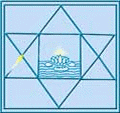|
Memory in Ignorance
Of the two aspects of Consciousness, the Superconscious and the Inconscience, Sri Aurobindo approaches the subject of memory from Ignorance which is the hallmark of Inconscience. He finds that there are two applications of the process of memory (Ibid):
(a) Memory of self
(b) Memory of experience.
First, it applies memory to our being in Time : "I am now, I was in the past, I shall therefore be in the future, it is the same I in all the three ever unstable divisions of Time." (Ibid) However this feeling seems to be a fact but is not proven to be true and one is not sure of the eternity of conscious being. Mind can know something of the past by memory, by direct self-awareness the present and it can infer from these experiences something about the future but it cannot fix the extent of the past and future. It knows it existed in an infant state though it does not remember if it existed before physical birth and of the future it knows nothing at all except apprehending a probability and it does not know if physical death is the end of conscious being.
Conviction of Eternity
"Yet it has this sense of a persistent continuity which easily extends itself into a conviction of eternity." (Ibid, pg.503) This conviction may be the result of an endless past of which something is retained as a formless impression. Or it might be some shadow of a self-knowledge from higher or deeper planes of the being. Or it might be a hallucination or a generalization of the eternity of the universe that is falsely transferred to human life. However we cannot experience death and intellectualize it and yet cherish a prevision of the continued existence in a physical body as well as that of a conscious eternity!
These issues cannot be tackled and give rise to endless speculations. "The belief in our immortality is only a faith, the belief in our mortality is only a faith." (Ibid, pg.504) It is impossible to prove that our consciousness ends with death; there is no proof that conscious self survives physical dissolution. If somehow the survival of the body by the human personality is proved one day, it would indicate a greater continuity and not the eternity of conscious being.
A Supramental experience
Time presents us an enigma. On one hand the linear time we follow as past, present and future appears oversimplified and present as continuous succession of moments. On the other hand the mind does not have proof that eternal Time really exists. It is difficult to believe that Time is the conscious Being's way of looking at eternity which it conceives through "successions and simultaneities of experiences" (Ibid) through which that existence is represented. "If there is an eternal Existence which is a conscious being, it must be beyond Time which it contains, timeless as we may say; it must be the Eternal of the Vedanta who, we may then conjecture, use Time only as a conceptual perspective for His view of His self-manifestation". (Ibid) The problem is that this timeless self-knowledge of the Eternal lies beyond mind --it is a supramental experience superconscient to us where one has to cross a passage of Silence into the consciousness of eternity.
Date of Update:
22-Dec-23
- By Dr. Soumitra Basu
|

